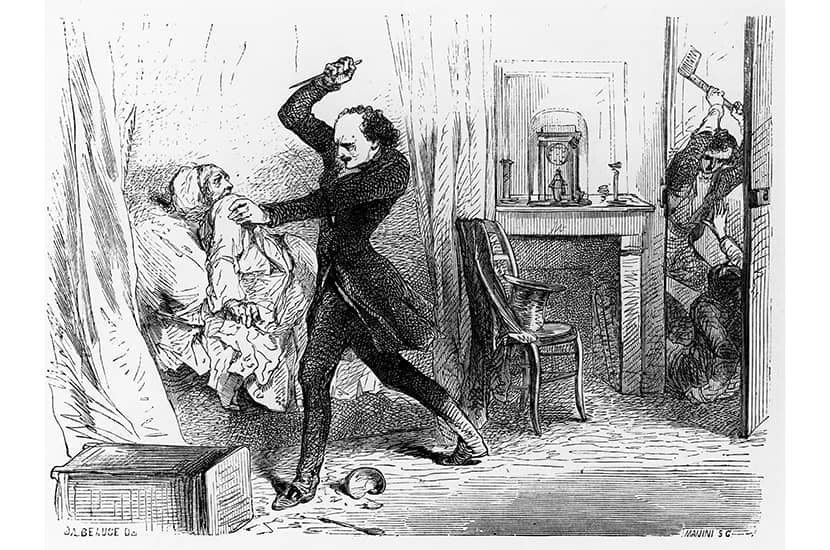‘Whether I am a trembling creature or whether I have the right…’ The much quoted words of Rodion Raskolnikov, the protagonist of Crime and Punishment, encapsulate the novel’s main question. Fyodor Dostoevsky first pitched the idea of ‘the psychological account of a crime’ to a publisher in 1865. Three decades earlier, a real-life murderer, Pierre François Lacenaire, waiting for his execution in a French prison, wrote: ‘Only I can decide whether I have done wrong or right to society.’ As Kevin Birmingham shows in his new book, this is but one detail of Lacenaire’s story mirrored in Dostoevsky’s masterpiece; moreover, Dostoevsky’s reflections on the case influenced the way he understood the nature of evil.
The Sinner and the Saint works on several levels: as a historical study, a work of literary criticism and, gratifyingly, a double thriller. Chapters on Dostoevsky and Lacenaire alternate, the storylines running parallel to one another, each towards its own climax. Dostoevsky loses his parents early and renounces his share in his father’s estate to become a writer. Lacenaire is abandoned by his impoverished family and dabbles in poetry. Dostoevsky joins a radical group to read and discuss works banned by censorship; soon the conspirators are denounced and imprisoned. Lacenaire goes to prison for stealing a horse and carriage, and decides that his place is among the outlaws. Dostoevsky and his comrades are sentenced to death. As they stand blindfolded before the firing squad, the mock execution is stopped. His sentence commuted to penal servitude, in Siberia Dostoevsky talks to other inmates and records his observations in a secret diary. Back in Paris, Lacenaire, now a proponent of ‘ferocious materialism’, kills two people. His trial causes a sensation. He enjoys his celebrity status during the proceedings, writes a memoir and dies on the guillotine.
‘One must study so many murders to write just one murder story effectively,’ said Dostoevsky
After ten years in exile, in 1859 Dostoevsky returns to St Petersburg to rejoin literary life.







Comments
Join the debate for just £1 a month
Be part of the conversation with other Spectator readers by getting your first three months for £3.
UNLOCK ACCESS Just £1 a monthAlready a subscriber? Log in